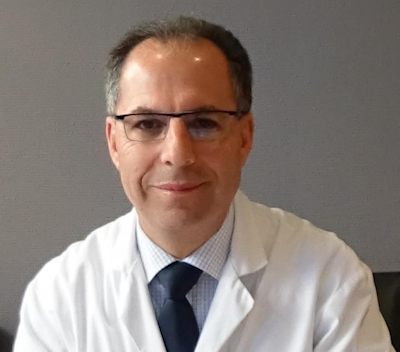Fighting Cancer As Much As Possible: Why Patients Join Phase 1 Clinical Trials
Author: European Society for Medical Oncology
Published: 2018/03/23 - Updated: 2024/07/01
Publication Type: Announcement
Category Topic: Clinical Trials - Related Publications
Page Content: Synopsis - Introduction - Main
Synopsis: The importance of early stage trials is increasing because of the pressing need for new drugs. This has been accompanied by rising interest from patients in participating in such trials due to the introduction of alternatives to chemotherapy and larger trials which benefit more patients.
Introduction
TAT (Targeted Anticancer Therapies) International Congress 2018.
Main Content
"Fighting my cancer as much as possible" is why many patients participate in early stage clinical trials, according to research presented at the TAT (Targeted Anticancer Therapies) International Congress 2018 in Paris, France.
"The importance of early stage trials is increasing because of the pressing need for new drugs," said Dr Markus Joerger, Attending Medical Oncologist and responsible of the phase 1 unit at St Gallen Cancer Centre, Switzerland, member of the ESMO Press and Media Committee. This has been accompanied by rising interest from patients in participating in such trials due to the introduction of alternatives to chemotherapy and larger trials which benefit more patients.
Joerger said:
"The public is aware that cancer treatment is not just chemotherapy, which is often accompanied by substantial side-effects; we now also have targeted drugs and immunotherapy. In addition, we have a deeper understanding of tumour biology and can better select patients for trials, leading to higher response rates and increased clinical benefit. Early stage trials include more patients than before, so there is the potential for greater numbers of patients to benefit."

Dr Benjamin Verret of the Drug Development Unit (DITEP), Institut Gustave Roussy, Villejuif, France, author of a study analysing the answers to a self-administered questionnaire assessing patient preferences for participation in phase 1 clinical trials(1) said:
"Ten years ago, phase 1 clinical trials were maybe the only option for patients with a cancer at an advanced stage that would not respond to standard treatment. Today this is no longer the case. Participants in early stage trials gain access to treatment alternatives such as targeted therapy and immune checkpoint inhibitors."
Verret's research found that "fighting my cancer as much as possible" was one of the top two reasons why patients choose to participate in a phase 1 clinical trial. He said: "In our study, only one in six patients said that clinical trial participation was their only option. More than two-thirds said their reason for taking part was 'having access to the best cancer treatment'. These findings suggest an improvement in the public's opinion of clinical trials. Interestingly, a survey we conducted among oncologists referring patients to our phase 1 trial unit also indicates more public support for early stage trials."
Commenting on the study, Joerger said:
"This study suggests that the attractiveness of early stage clinical trials has improved. The centre where I work, for example has had an increase in referrals to these trials over the last ten years. Cancer therapy is becoming more personalised, and patients may have longer responses and less toxicity than with chemotherapy." Selection of patients is crucial to achieving the aims of phase 1 trials, which are to determine the correct dose and safety of a new drug. Another study presented at the TAT International Congress 2018 provided external validation of a score which predicts overall survival of patients in phase 1 immuno-oncology trials and can be used to select participants(2). Study author Dr Lucia Ceniceros of the Clínica Universidad de Navarra, Pamplona, Spain, said: "The score is particularly useful for determining the most appropriate patients to receive treatment in a phase 1 immuno-oncology trial. Selecting the correct patients should reduce toxicities and improve survival."
Joerger added:
"The score can improve understanding about the impact of immunotherapy generally. In future what we really need is predictive markers for specific immunotherapy drugs. Over the next five years we will have many more immunotherapy drugs and specific predictors should be developed for each therapy."

Dr Ahmad Awada, Head of Medical Oncology at the Jules Bordet Institute in Brussels, Belgium, expert in new drug development and Coordinator of the ESMO Faculty of Principles of clinical trials and systemic therapy, commented:
"The proper selection of patients is crucial for a correct evaluation of a new agent in the phase 1 setting as the evaluation of the tolerance and the efficacy for the majority of patients is analysed at a later stage."
Awada also emphasised the importance of patient's informed consent when they are offered participation in early and/or later phase clinical trials:
"New electronic tools are currently being developed in order to facilitate a patient's understanding and participation in clinical trials and to refine their expectations."
Joerger concluded:
"Patients with cancer are becoming more and more interested in taking part in phase 1 clinical trials and research presented at the TAT International Congress 2018 confirms that this is not because these trials are their only option. More research is needed to improve patient selection for phase 1 trials so that even more patients with cancer can benefit."
Reference Sources
1 Abstract 141P 'Self-questionnaire to assess patient's preferences for participation in phase I clinical trials' presented by Benjamin Verret during the Poster display session on Monday, 5 March, 17:10 to 18:00 (CET) in Room Scene AB.
2 Abstract 117P 'External Validation of the Gustave Roussy Immune Score (GRIm score) in an unselected cohort of patients treated at the Clinica Universidad de Navarra' presented by Lucia Ceniceros during a Poster display session on Monday, 5 March, 17:10 to 18:00 (CET) in Room Scene AB.
Attribution/Source(s): This quality-reviewed publication was selected for publishing by the editors of Disabled World (DW) due to its relevance to the disability community. Originally authored by European Society for Medical Oncology and published on 2018/03/23, this content may have been edited for style, clarity, or brevity.